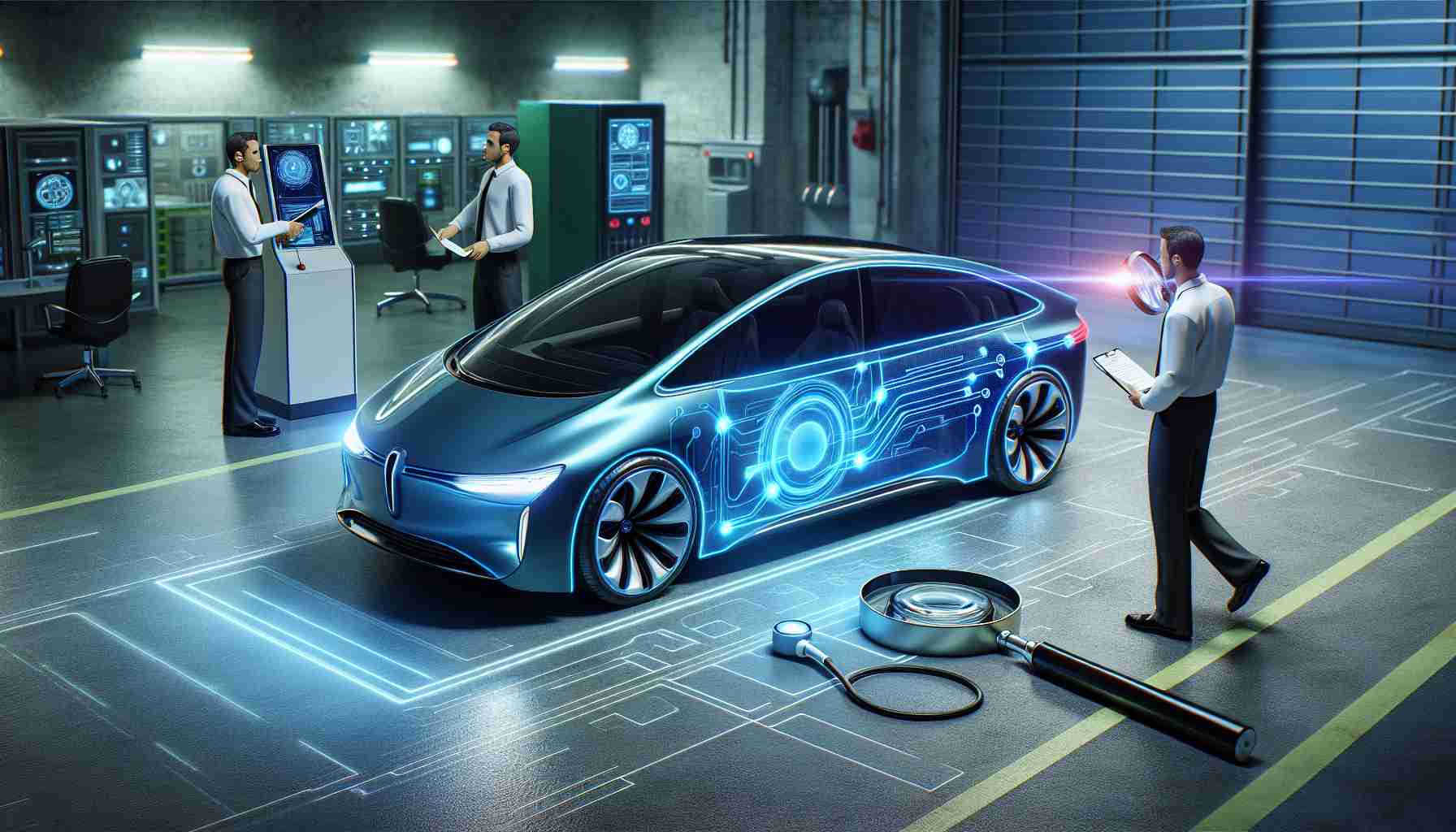The National Highway Traffic Safety Administration (NHTSA) has announced an investigation into Tesla’s Full Self-Driving (FSD) technology. This inquiry arises from concerns regarding the software’s ability to respond suitably to diminished roadway visibility, a scenario increasingly prevalent on the roads.
Reports indicate that there have been four separate incidents where Tesla vehicles, while utilizing the FSD feature, were involved in crashes under conditions of low visibility. Such conditions stemmed from common environmental issues, including fog, dust in the air, and sun glare. One of these unfortunate events tragically resulted in a fatality when a Tesla struck a pedestrian, and another incident resulted in injuries.
The NHTSA is embarking on a preliminary evaluation to examine a variety of factors related to the FSD system. Their focus will center on how effectively the software adapts to less-than-ideal visibility circumstances and whether there have been other crashes involving the FSD system during similar conditions. The agency will also investigate if Tesla’s software updates have influenced performance in these challenging situations and whether the company has adequately considered the safety implications of such modifications.
The investigation encompasses various Tesla models, specifically the Model S and X (2016-2024), the Model 3 (2017-2024), the Model Y (2020-2024), and the Cybertruck (2023-2024), all equipped with the FSD feature.
Investigation Launched into Tesla’s Autonomous Driving System: Unpacking New Developments
The recent investigation by the National Highway Traffic Safety Administration (NHTSA) into Tesla’s Full Self-Driving (FSD) technology highlights significant concerns regarding the system’s performance in adverse visibility conditions. However, beyond the incidents that prompted the investigation, there are broader implications and ongoing discussions surrounding the use of autonomous driving technologies.
Key Questions Surrounding the Investigation
1. How does Tesla’s FSD system compare to competitors?
Tesla’s FSD technology has been at the forefront of autonomous vehicle development, yet it faces stiff competition from companies like Waymo, Cruise, and traditional automakers investing in their own autonomous technologies. While Tesla’s system boasts over a million miles of real-world data, the response and overall safety record in challenging conditions like low visibility may vary significantly from rivals.
2. What is the definition of ‘Full Self-Driving’?
The term “Full Self-Driving” has sparked controversy as it implies a level of autonomy that is currently not fully achieved by any commercially available vehicle. Regulatory bodies and safety advocates are calling for clearer definitions and standards to avoid misconceptions about the capabilities of such systems.
3. What are the regulatory implications of the investigation?
The outcome of the NHTSA investigation could set a precedent for how autonomous driving systems are evaluated and regulated in the future. If findings suggest significant flaws, it may lead to stricter regulations on the testing and deployment of autonomous driving technologies across the industry.
Challenges and Controversies
The investigation into Tesla’s FSD has brought to light several challenges and controversies:
– Safety and Liability: One of the primary challenges is determining liability in the event of an accident involving autonomous features. If a vehicle is operating under FSD and crashes, who is responsible—the driver, the manufacturer, or the software developer?
– Public Perception and Trust: There are growing concerns regarding public trust in autonomous driving systems. Incidents involving fatalities or injuries can lead to fear and skepticism about the technology, delaying potential advancements and adoption.
– Ethical Considerations: The implementation of autonomous driving systems raises ethical questions concerning decision-making algorithms. In scenarios where an accident is unavoidable, how does a system choose between potential victims? This “trolley problem” aspect continues to be an active area of research and debate.
Advantages and Disadvantages of Autonomous Driving Systems
Advantages:
– Reduced Human Error: Autonomous systems have the potential to significantly decrease accidents caused by human mistakes, such as distracted or impaired driving.
– Traffic Efficiency: Autonomous vehicles can optimize driving patterns, potentially reducing traffic congestion and improving fuel efficiency.
– Accessibility: These technologies could enhance mobility for individuals unable to drive, including the elderly and disabled.
Disadvantages:
– Safety Risks: Current systems may not accurately detect and respond to all roadway conditions, especially in low visibility, raising safety concerns.
– Job Displacement: The rise of autonomous vehicles could impact employment in driving-related professions, such as truck drivers and taxi services.
– Technical Limitations: Challenges in system design and public acceptance could halt progress and reduce the technology’s overall impact.
As the NHTSA investigation unfolds, it remains crucial to consider both the potential benefits and the pitfalls of Tesla’s FSD technology, as well as the wider implications for the future of autonomous driving.
For more in-depth information on autonomous driving technologies, visit Tesla’s official page.








